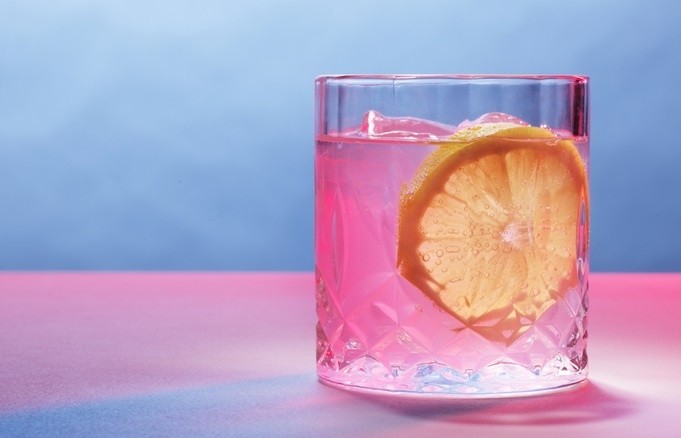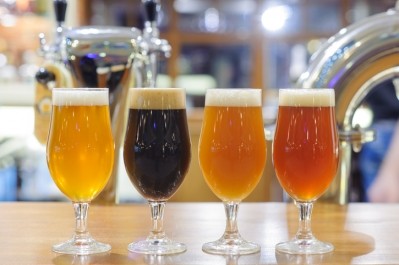‘New words for a new lifestyle’: What’s the right language to use with alcohol-free drinks?

Look back to the 1990s, when the no and low category was in its infancy with aliening language bordering on patronising (think of those poor ‘designated drivers’ clutching a carbonated soft drink in the corner of the room).
Today, in contrast, there's an exciting low/no alcohol field brimming with innovation and passion. And yet that creates a tension between the traditional language of the past; and a market with new, innovative products.
“And at this crossroads, the stakeholders within the sector must carefully pick the language being used, to decide who it is speaking to and in what way,” highlights UK marketing, advertising and PR firm Boldspace.
Be inclusive
In researching this theme, the agency sat down with Club Soda - the UK's mindful drinking specialist - and nine up-and-coming brands in the low and no sector.
“One of the most common themes that arose from our conversations was the need for language in this sector to be inclusive," said Adam Lartner, senior strategy director, and lead author of the firm's new report on 'The Language of No & Low'.
"This is not just limited to inclusivity in the sense of respectful language which includes all audiences such as gender inclusivity, inclusivity of sexual orientation, of race and religion; it is also inclusivity in mindset, lifestyle, and culture."
That should immediately flag some common words not to use.
“Some of the most jarring words for people were words like ‘sober’ or ‘teetotal’," said Larter. "These words feel at odds with a sector which wants to open doors, to have everyone sitting around the same table.”
In contrast, Club Soda deliberately chose the word ‘club’ to show it is about bringing people together.
Four words to ditch immediately
There are some words, according to the research, which should be collectively discarded and ‘will quickly become marketing antiques’.
Mocktail ‘immediately feels childish, or less valuable. It’s an unsophisticated rip off which does not do justice to the great craft and detail involved in mixology.'
Just like the mocktail, a ‘virgin drink’ seems like a childish option, something sweet and nasty for the designated driver.
And while ‘teetotal’ might be useful for those who self-identify in this way, it is a challenging word to enforce upon an entire audience: ‘at best it is old-fashioned, a hark back to puritanism or prohibition, at worse it is a triggering term which can highlight stories which people would rather keep personal.’
The word ‘sober’, meanwhile, risks being too close to ‘sensible’ and simply invites comparison between those who drink and those who don't.
'Be proud to be what you are, not of what you are not'
‘Conscious’ and ‘mindful’ are more approachable words, yet still need to be treated with care.
"They can be inclusive words, and for the right brand, for the right scenario can work," said Lartner.
"But they are also calmer words: mindful or conscious could be at odds with fun and excitement.”
What really sets you apart?
A common theme in marketing is to tell the founders' story. That can be inspiring: but in a market now proliferated with plucky founders who were forced to give up alcohol - but then triumphed with the creation of an all-singing, all-dancing alcohol-free brand - that doesn't necessarily set a brand apart.
“A founder story can be great if it comes with a unique tale, or insight into the product, but many can simply reinforce the small size of a brand in a category with many independent brands,” added Lartner.
Similarly, think carefully whether a comparison to alcohol (ie: ‘just as good’, ‘the next best thing’ or ‘you won’t tell the difference’) is a useful way to explain your product or evokes the idea of being a substitute.
“For some brands, this may work. But those who really want to build a brand, not a substitute, can move away from this language of imitation. Be proud to be what you are, not of what you are not.”
Naming challenges
The first challenge comes from explaining what a product is. Different markets have different rules on what you can and can’t call a product (the ABV of tequila and gin, for example, form part of their very definition).
That means brands often turn to definitions such as ‘gin-style’ or ‘tequila alternative’. But others prefer to build up a solid brand with the aim of creating an entity in themselves (a ‘Pepsi’ or ‘Coke’ needs no explanation).
Another point of consideration is how brands can explain notions of quality, heritage and craft. Should, for example, brands spend a lot of time explaining their dealcoholization process to consumers – or will they risk putting them off entirely?
And that’s before we even start looking at product regulations (the UK is in the process of reassessing the threshold for alcohol-free).
Good words to use...
So what words should we use to replace these? Surprisingly, an increasing number of brands believe this isn't the question we should be asking. The question is more about how to build a brand and align it with a feeling, occasion or state of being.
For starters, think about how a brand can convey warmth and fun.
“How can you stop selling to people, and instead show them that experiencing your product is a conversation that they would naturally want to be part of?," said Lartner.
“We’d like to see more of brands that leave and breathe nightlife, music, art, political movements, current conversations, pop-culture, lowbrow and highbrow. Language that talks about sport. Niche sport. Badminton, parkour, squash – language which feels like it has a time and place."
If a brand manages to find a purpose, it finds a personality - and then we're in business.
“Personality for brands is born from brand purpose," said Lartner. "In fact, we see this many times with brands. They struggle to find their unique tone of voice, they struggle to find an interesting story for social media. It isn’t because they are writing bad copy or making bad social media, but because they do not know what their brand stands for.
“Those brands with personality in their language, those brands with unique words and turn-of-phrase, are certain in who they are and what they stand for. They are more than the functional benefits of the product: they are more than ‘hangover free’ or ‘just as good as an alcoholic drink’. They are living, breathing personalities.”
Do we even need the term ‘alcohol-free’?
Brands need to present their alcohol content to consumers. But could we be heading towards a society where 'alcohol-free' or 'low alcohol' is no longer a necessary additional description?
Maybe not yet, but in the long term, the sector could find it no longer needs these descriptors.
"For established brands with an alcohol free alternative, it makes sense to have alcohol free or low alcohol on the bottle as a signpost of differentiation but standalone brands may benefit from reducing the use of these descriptors," says Larter.
"This would include removing ‘alcohol free’ from the bottle and simply having ABV to highlight the lack of alcohol. While the average consumer may not understand what ABV stands for, the percentage is self explanatory and universally understood.
"In this case, the brand is given more room and the alcohol strength is more of a footnote. Similarly, as awareness grows, no and low could be removed as a descriptor from physical and digital point of self and no and low drinks can be integrated: no and low beer brands with the alcoholic beer brands, no and low wine brands with the wine brands, functional drinks sitting alone as their own category.
"This integration works equally well with menus; beers with beers, cocktails stop being mocktails and just become a choice on which spirit to have, with an option for a 0% or 5% brand."














